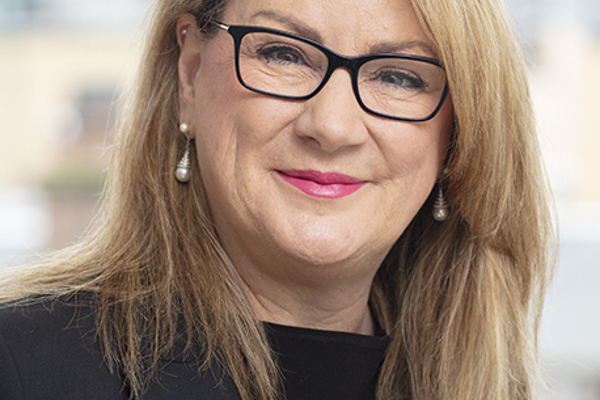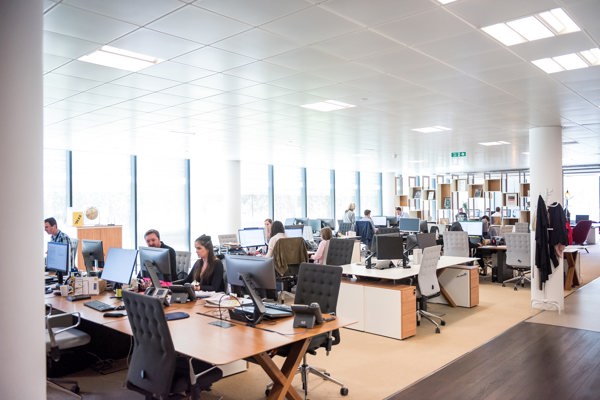I was born and raised in a home where the echoes of my grandparents’ homeland reverberated – a homeland in which the upheaval caused by the partition of the Punjab in 1947 where my grandparents’ families were uprooted from West Punjab (now modern-day Pakistan following partition) to East Punjab in India, compelled them to leave in search of a better life.
I often celebrate the invaluable gift bestowed upon me by my grandparents - a rich blend of culture, language, and lifestyle that has shaped every aspect of my identity.
Culture
Being brought up in a culture where the principal tenet is ‘respect your elders’, I grew up very much in the embrace of my grandparents. Our home, was therefore, one of tradition and warmth. Growing up, I was brought up with a large family, dad being one of eight children and I had many cousins. I recall during my childhood spending a lot of time with the whole family together at our grandparents' home, especially during one of the many festivals we celebrate. Our grandparents' home was never without the mouth-watering aroma of Punjabi cuisine wafting through the air; it was also never without someone in the family singing Punjabi folk songs alongside my grandad (or his grandchildren who he taught) playing the ‘Dholki’ (a drum originating from Northern India) that he had mastered at an early age in Punjab.
Language
Against the backdrop of the then recent atrocities of partition and uprooting, my grandad first ventured alone to Scotland leaving his wife and four children behind in search of a new life. He first arrived in Edinburgh, spent some time in Aberdeen and then not long after settled in Leith, Edinburgh. I suspect for my grandad, a Sikh Punjabi wearing his ‘pagh’ (turban), that arriving in Scotland alone with no knowledge of English (least of all Scots) and the prospect of having to adapt to a new culture would have been a daunting one.
When my grandad managed to bring over his wife and children, he and my grandmother were faced with the complexities of adapting to and bringing up their children in a new culture while striving to preserve their roots. However, the newly established Gurdwara in Edinburgh (for which my grandparents recently received a posthumous commemorative award recognising their contributions made to the Edinburgh Sangat (community)) and the tight-knit Punjabi Sikh community provided a sense of familiarity and solace amid the unfamiliarity.
I suspect in those days, there were no widely available English as a foreign language courses, so my grandparents did not learn to communicate in English very well. As a result, Punjabi, my grandparents' mother tongue, became my first language which connects me directly to my ancestral roots. I feel blessed to have grown up speaking it, especially as a means to have connected with my grandparents but to continue to connect with my South Asian heritage. It is an aspect of my heritage I hope to pass on to the generations in my family to come.
Lifestyle
Having been born and bred in Leith, Edinburgh and having a lot of family based across the UK, I was lucky to have the opportunity to embrace my Punjabi culture as well as the culture of Scotland and the wider UK. From celebrating Vaisakhi with the local Sikh community or in other parts of the UK, attending the local South Asian Melas, to getting involved with Burn’s Night and Easter and Christmas celebrations, I embraced the diversity while holding my heritage close to my heart. It seems that my grandad was of similar mind in that he was part of a musical group formed of members of the Sikh Community in Edinburgh performing at the Leith Festival in 1971, also embracing the diversity while always holding his roots close to his heart (see below attached photo with my grandad holding a ‘Dholki’).

From left to right:
1st row Gurbachan Singh Bhaker, Swaran Singh Roudh ("Tagge Shah") Sapuran Singh Bhai, Jaswant Singh Bhai.
2nd row: Ronak Singh Rathour, Kuldip Singh Bhaker, Karnel Singh Landa, Swaran Singh Kusbia.
3rd row: Mewa Singh Bhai, Lehna Singh Bhaker, Ryminder Singh Digwa and Kartar Singh Landa.
Despite embracing my heritage over the years, and now being relatively well travelled and having lived in a few different countries in Europe, it shocks people to hear that I have never been to Punjab; that I have never been to any other part of India; nor have I been to Asia – not yet in any case. But I am very much looking forward to the day I step foot on the soil where my grandparents and my dad came from and I hope that it further strengthens the already strong connection I feel to Punjabi culture.
My family’s story of resilience and fortitude during their migration journey and their ability to assimilate into a new culture and be successful has left an indelible mark on my character. Each of their successes lay in pushing the boundaries in whatever line of work they pursued. My dad was a culinary genius with novel ideas of fusion of Punjabi cuisine with food from other cultures. He had several successful eating establishments over the years. My grandad on the other hand was a shopkeeper of a local convenience store for many years after having been a door-to-door salesman upon arriving in Scotland.
So, neither of them was a doctor, engineer, or a lawyer and neither was anyone else in our family, but their wisdom and guidance shaped my perspective on life, instilling values of gratitude, compassion, hard work and determination and perseverance. These values put into practice helped me to be the first in the family to go to university while in employment and to then go onto qualify as the first solicitor in our family. Sadly, neither my grandad, nor my father got to see me qualify as a solicitor, but I know they would be proud of me and what I have achieved against all odds.
In short, South Asian Heritage Month serves as a reminder of the importance of preserving and sharing our heritage with pride as well as fostering a sense of unity among South Asian diaspora worldwide with a relatable story.


